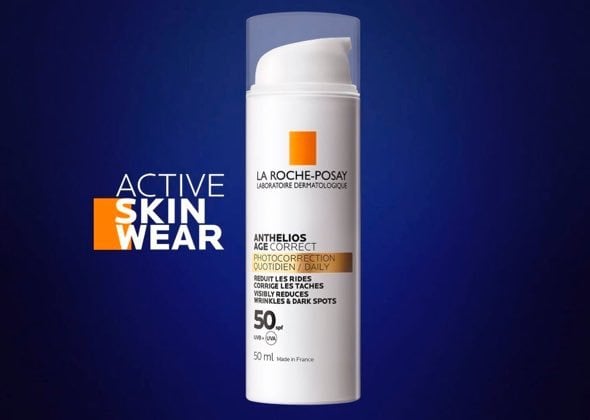WHAT IS PSORIASIS?
Psoriasis is a chronic inflammatory skin disease. It is "chronic" because it can last for long periods of time, and "inflammatory" because it involves an overactivation of the immune system. Psoriasis tends to occur in people with a genetic predisposition to the condition (meaning it runs in families). It often begins in adulthood and tends to flare up at times of stress. There are several different subtypes of psoriasis (plaque, guttate, inverse, pustular and erythrodermic). In this article we will focus on plaque psoriasis which makes up 90% of cases.
Wondering about the difference between eczema and psoriasis? Click HERE to skip to our summary table.
CAUSES OF PSORIASIS
What causes psoriasis to flare up?
Studies on twins have revealed that psoriasis is a hereditary or genetic condition. But twins with psoriasis may have different experiences of psoriasis as flare-ups can be brought on by several factors:
- stress, overwork or emotional trauma
- clothing that rubs against skin
- certain common medications including beta-blockers, NSAIDs (ibuprofen, diclofenac, etc.), lithium and malaria treatments
- infections (commonly nose and throat infections)
- injury to the skin such as sunburn or tattoos can bring on flare-ups. This is called the Koebner phenomenon
SYMPTOMS OF PSORIASIS
What does psoriasis look like?
In plaque psoriasis, people develop rough red patches of thickened skin covered in white scales. These plaques are most frequently found on areas that are subject to friction: knees, elbows, abdomen and lower back. They can also be found on the scalp, hands and feet. Psoriasis sufferers often develop nail changes in the form of pitting or splitting of the nails (known as onycholysis).
If you have psoriasis, keep reading to discover your treatment options.
Do I have eczema or psoriasis? Both eczema and psoriasis cause itchy red skin lesions, yet they are distinct conditions. SKIP to our guide to work out which one you might have.
WHY DO PSORIASIS PLAQUES
FORM?
Psoriasis: All about cell turnover speed
Psoriasis is caused by chronic inflammation. This has been demonstrated by the presence of a type of immune cell called T lymphocytes in psoriatic skin. The resultant inflammation speeds up the cellular renewal process, which accelerates the production of keratinocytes (the dead cells at skin's surface).
Whereas these cells normally take 28 days to travel from the basal layer of the epidermis up to the surface (the corneal layer), in psoriasis they take just 3-4 days.
As a result, dead cells begin to accumulate at the surface causing red scaly patches to form.
HOW TO TAKE CARE OF
PSORIASIS
What are the different options for psoriasis?
Not sure which psoriasis skincare option would be best for you? Read on for our expert guide.
Psoriasis creams
The first-line solution for psoriasis are specific creams. Your doctor may prescribe steroid creams or vitamin D3 cream. There are also some great products that you can buy over the counter in the pharmacy, like ISO-UREA MD Baume Psoriasis. It helps to eliminate scaling, prevents plaque thickening and provides long-lasting moisturisation to effectively soothe itchiness.
Phototherapy for psoriasis
In phototherapy, skin is exposed to a controlled dose of UVA/UVB rays. This can slow down the production of skin cells and reduce plaque formation. But don't take this as a recommendation for sunbathing: In phototherapy the dose of UVA/UVB is carefully calibrated by your doctor.
Oral medications for psoriasis
In very severe forms of psoriasis, your doctor may prescribe tablets. These are usually immune suppressant medications such as methotrexate, to get the hyperactive immune system under control.
Spa therapy aka balneotherapy for psoriasis
Spa therapy has been proven to be effective for psoriasis. Thermal spa water has soothing and cleansing properties, which help reduce the number and size of psoriasis patches.
You can also buy La Roche-Posay Thermal Spring Water in the pharmacy for mist-on soothing relief.
Biologic therapies for psoriasis
Very severe cases of psoriasis are treated with therapies known as "biologics" which are antibodies that are given by injection. They "throw a spanner in the works" of inflammation by binding to inflammatory mediators involved in psoriasis.
Eczema vs. Psoriasis
What is the difference between eczema and psoriasis?
Both eczema and psoriasis cause itchy red skin patches, yet they are distinct conditions. See the table below for a guide to the similarities and differences.
| Eczema | Psoriasis | |
| Who's affected | Babies and young children. Resolves by age 5 in 50% of cases but can continue into adolescence and adulthood. | Usually starts between 15 and 35. Rare in babies and small children. |
| What you feel | Intense itching. | Milder itching, with stinging or burning. |
| What the lesions look like | Red patches with scaling, oozing or crusting. There may be visible scratch marks and bleeding. | Raised red patches with a silver scaling surface. The skin is thicker and more inflamed than in eczema. |
| Where you get the lesions | In babies: Any part of the body can be affected but it is particularly common on the face and scalp In older children: It tends to affect the neck and skin folds (the inside of the elbows, the back of the knees, etc.). | Elbows, knees, scalp and face, lower back, palms of the hands and soles of the feet. Psoriasis can also cause pitting and splitting of the nails which does not occur in eczema. |
| Triggers | Anything that dries the skin like harsh soaps can trigger eczema. It is also triggered by irritants such as washing detergents, as well as allergens such as house dust mite and certain foods. Finally, eczema can flare up due to stress, hot and stuffy environments, or leaving sweat on skin after sport. | Like eczema, psoriasis can be triggered by stress. It can also be brought on by throat infections or injury to the skin (scratches, cuts, tattoos…). Certain medications can bring on psoriasis flare-ups such as beta-blockers, NSAIDs (ibuprofen), lithium or anti-malarial drugs. |
| Treatments | Eczema flare-ups are usually treated with topical corticosteroid creams, followed by emollients for maintenance. In extreme cases, your doctor may prescribe oral medications like methotrexate or "biologics" (antibody infusions into a vein) such as dupilumab. | Mild and fairly localised cases of psoriasis can be controlled with topical corticosteroids and emollients. The condition benefits from a keratolytic (skin-sloughing) emollient. More severe cases are treated with oral immune suppressant medications like methotrexate, phototherapy, or "biologics" in the most extreme cases. |
Click HERE for an in-depth look at eczema from causes to solutions.








